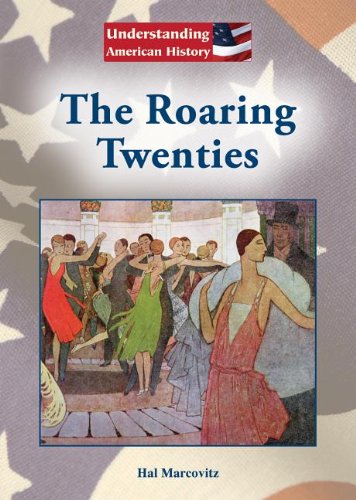-
Ancient Egypt
Stuart A. Kallen
Hardcover (Referencepoint Pr Inc, Aug. 1, 2011)Discusses the history and civilization of ancient Egypt.
-
The Holocaust
Charles George, Linda George
Hardcover (Referencepoint Pr Inc, Aug. 1, 2011)Discusses Hitler's plan to exterminate the Jews, life in the camps, resistance of the prisoners, and the topics of freedom, justice, and the remembrance of those who died.
-
Ancient Rome
Hal Marcovitz
Library Binding (Referencepoint Press, Aug. 1, 2011)To examine major historical periods and events, focusing on the defining political, social, and cultural trends of those periods. Authors should use primary source quotes (diaries, letters, speeches, news reports of the time, etc.) when available and secondary source quotes (historians, etc.) as needed to illustrate and support main ideas.
-
The 1960s
Hal Marcovitz, Bruno Leone
Library Binding (Referencepoint Press, Dec. 1, 2012)As America fought the war in Vietnam, other conflicts were brewing at home. African Americans and other minorities demanded civil rights, women demanded equal pay and young people demanded the right to demonstrate on college campuses. The 1960s represented an era of change as new frontiers in space were conquered while on the ground, free love, rock n roll and drug abuse dominated American culture.
-
The Black Death
Stephen Currie
Library Binding (Referencepoint Press, Aug. 1, 2012)During the fourteenth century, Europe was attacked by a pestilence known as the Black Death. Highly contagious and usually fatal, the Black Death swept through much of the continent in waves, killing up to a third of the population and dramatically changing the way the survivors lived their lives and thought about the world. The Black Death had an impact on European culture, politics, and society that lasted well beyond the years of the pestilence itself.
-
The Salem Witch Trials
Gail Stewart
Hardcover (Referencepoint Pr Inc, Aug. 1, 2012)Discusses the Salem Witch Trials, including their historical context, what happened to the accused, and how the trials changed the American legal system.
-
The Great Depression
Linda George, Charles George
Library Binding (Referencepoint Press, Dec. 1, 2012)The Great Depression of the 1930s was the worst financial disaster ever to strike the United States. This book explains the events, economic practices,and social attitudes that helped bring about the Stock Market Crash of October 29, 1929, it describes in vivid detail what life was like for Americansduring the Great Depression and the Dust Bowl Days, and it also outlines the legacy of the Great Depression--how it affected those who lived through it and those generations that have followed.
-
The Relocation of the American Indian
Don Nardo
Hardcover (Referencepoint Pr Inc, Aug. 1, 2014)Examines the government policies and programs that forced Native Americans to relocate, including the "Trail of Tears" and the activism of Wounded Knee.
-
The War in Afghanistan
Stuart A Kallen
Library Binding (Referencepoint Press, Feb. 15, 2014)The war in Afghanistan, launched after the terrorist attacks on 9/11, was Americas longest and perhaps least-talked about war. The War in Afghanistan provides context and clarity concerning the U.S. militarys initial success in Afghanistan, the Taliban resurgence, the Surge, and the impact of the war on Americans, American soldiers, and average Afghans.
-
The Roaring Twenties
Hal Marcovitz
Hardcover (Referencepoint Pr Inc, Aug. 1, 2012)Describes the history of the United States during the nineteen twenties, discussing prohibition, the stock market, jazz, organized crime, presidential scandals, women's rights, achievements in flight, and the stock market crash of 1929.
-
Prohibition
Stephen Currie, Bruno Leone
Library Binding (Referencepoint Press, Dec. 1, 2012)During the Prohibition era, Americans could not legally sell or manufacture alcoholic drinks but many people simply ignored the laws and consumed all the liquor they wanted. This book discusses how Prohibition came into being, how it worked and did not work, why it was eventually repealed, and what legacies Prohibition left for modern America.
-
The Abolition of Slavery
Diane Yancey
Library Binding (Referencepoint Press, Aug. 1, 2012)Slavery, its abolition, and its legacy have divided the United States from the nations beginning. The issue brought out the best and the worst in Americans, but it took a Civil War for the practice to be brought to an end. Even then, the battle for black freedom and equality continued, and it continues to the present day.